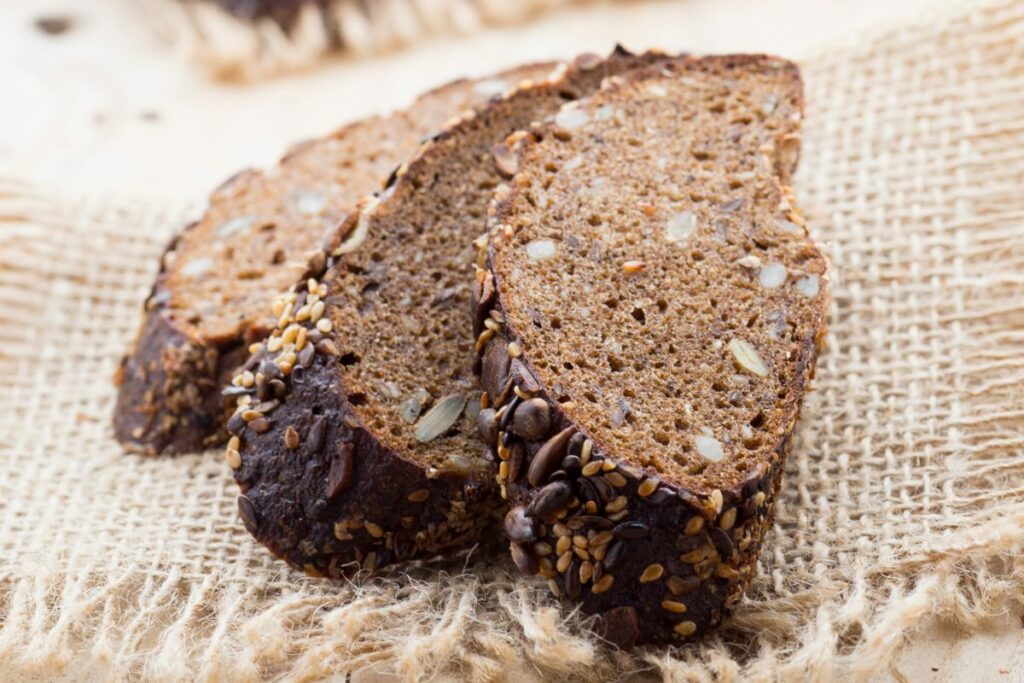If you are someone who has to follow a gluten-free diet, then you will know that finding gluten-free options isn’t always easy.
It is often very difficult to find gluten-free alternatives for your favorite treats.
One of the staples of your diet that you may often struggle to find gluten-free alternatives for is bread.
While there are lots of different types of bread out there, the vast majority of bread will contain gluten.
This can make life as someone who follows a gluten-free diet very difficult.
That is why you may find yourself constantly on the lookout for delicious gluten-free bread alternatives.
In this guide, we’ll be focusing on rye bread to find out if it is gluten-free.
After all, this bread is often seen as a healthy alternative, so it must be gluten-free, right? Wrong!
Rye bread isn’t actually suitable for those following a gluten-free diet.
Keep on reading to find out more!
What Is Rye Bread?
First things first, what is rye bread? Good question!
Well, as the name suggests, rye bread is a bread that is made using rye as the key ingredient.
Instead of using wheat flour, as most traditional bread recipes do, rye bread is made using flour that is created using rye.
As a result, the key ingredient in this recipe is rye.
Rye bread can be dark or light in color, that is because the color of this bread isn’t determined by the flour.
Instead, the color of the bread is determined by the use of coloring agents in the recipe.
As a result, the color of this bread varies greatly.
In comparison to traditional bread recipes, rye bread is a lot denser than wheat-based bread.
This is because of the rye that is used to make the bread.
This density gives the bread an earthy flavor, and this is further complemented by the fact that this bread is healthy.
It is super filling and a lot more nutritious than other types of bread. That is one reason why it is so popular.
Is Rye Bread Gluten Free?
As we have just established, rye bread is an incredibly healthy alternative to wheat-based bread.
It has an earthy flavor and is packed with vitamins and nutrients, and this makes a lot of people assume that it is gluten-free.
But, in fact, rye bread is not gluten-free. This bread actually contains gluten.
In order for a bread recipe to be gluten-free, the bread has to be made using special flour that does not contain gluten.
The vast majority of bread flours contain gluten, and that is because gluten protein is typically found in the grains that are used to make bread: wheat, barley, and rye.
Due to the presence of gluten protein in rye, any bread that is made using rye, including rye bread, will not be suitable for those following a gluten-free diet.
A lot of people make the mistake of believing that rye bread is gluten-free, and that is because rye is relatively low in gluten in comparison to wheat and barley.
So if you have a mild gluten intolerance, you may find yourself able to eat rye bread, even though you cannot eat wheat bread.
However, if you have a strong gluten intolerance or celiac disease, then you will not be able to eat rye bread – despite its low gluten content.
What Types Of Bread Are Gluten Free?
The discovery that rye bread is gluten-free might cause you to become frustrated, and that’s understandable.
When you follow a gluten-free diet, it can be really difficult to find gluten-free alternatives and it can almost have you pulling your hair out.
But while rye bread isn’t suitable for those following a gluten-free diet, there are plenty of options that are.
Thankfully, there are an increasing number of brands that are now striving to make gluten-free alternatives for those that have to follow a gluten-free diet.
One of the products that many of these brands are trying to make is bread because bread forms an essential part of most people’s diets. So gluten-free bread will really sell.
If you are on the search for gluten-free bread, all you need to do is search for a company that produces bread that is clearly labeled as “gluten-free”.
There are very few bread recipes out there that are gluten-free that weren’t designed to be gluten-free.
So if you want a gluten-free recipe, then your best bet is to simply purchase bread that has been designed to be gluten-free.
But what makes bread gluten-free? Let’s take a look.
What Makes Bread Gluten-free?
In order for bread to be gluten-free it has to be made using ingredients that contain absolutely zero gluten.
The thing that prevents most bread recipes from being gluten-free is the flour that is used to make the bread.
That is because the majority of flour is made using grains that are high in gluten protein.
As we established earlier, the key grains that are used to make bread: wheat, rye, and barley, all contain a lot of gluten.
So in order for bread to be gluten-free, it must be made using flour that has a different base ingredient to the grains outlined above.
Thankfully, there are lots of gluten-free flours not being developed.
Gluten-free bread will be made using one of these new types of flour.
Often, these flours have base ingredients such as rice, tapioca, or potato.
This may seem a little strange, but these ingredients do not naturally contain gluten, meaning that flour made using these ingredients is perfectly safe for those who must follow a gluten-free diet.
Summary
In short, no, rye bread is not gluten-free. In order for bread to be gluten-free it must not contain any ingredients that have gluten protein.
Unfortunately, rye does, and as a result, rye bread is not gluten friendly.
Thanks for reading!








